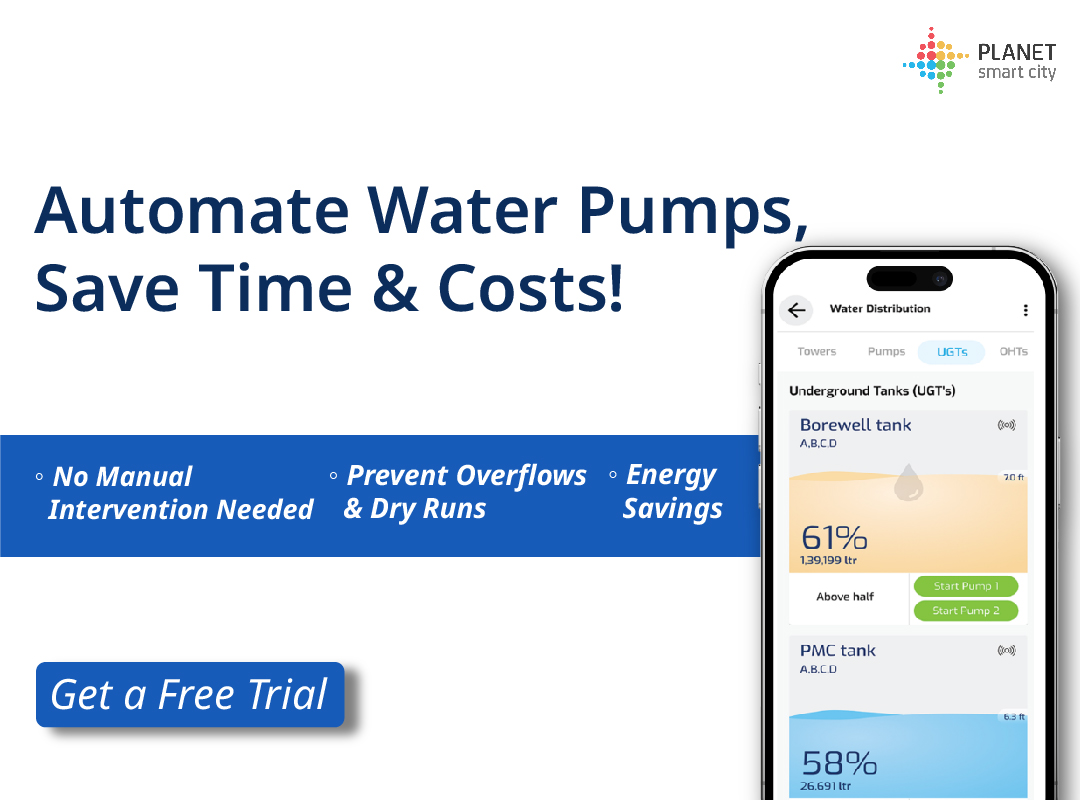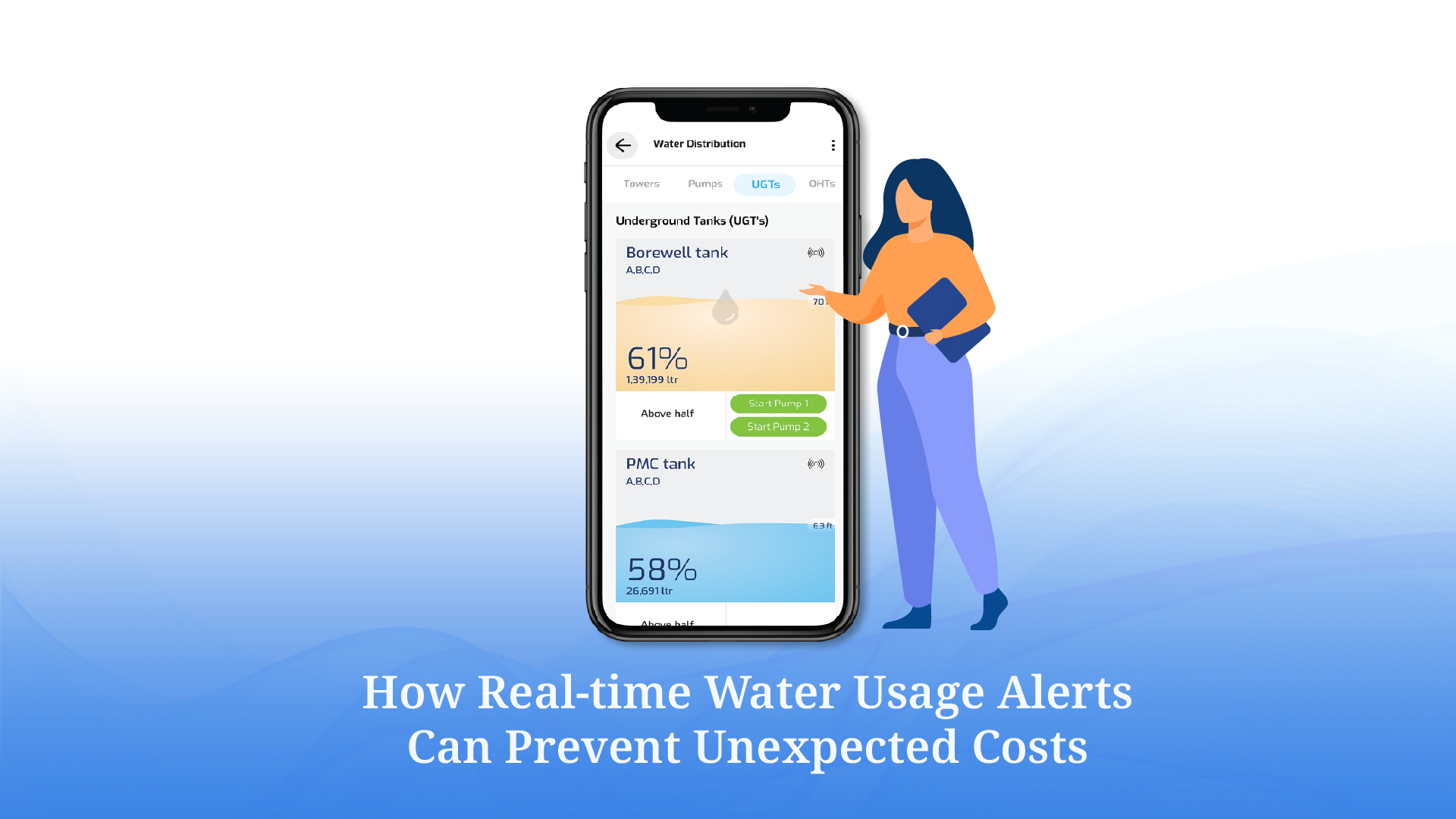Why Manual Water Pump Operations Are Outdated in Modern Societies?

Not too long ago, manual water pumps were a lifeline for many communities, particularly in rural areas and informal settlements. They provided access to water in homes, farms, and public spaces. It was a simple solution to daily water needs. But times have changed. Cities are expanding, lifestyles are busier, and technology is revolutionising how people manage essential resources.
Today, manual water pumps are more of a hindrance than a help. They require physical effort, offer limited efficiency, and lack control over water usage. In fast-growing cities like Mumbai, Pune and Bangalore, where efficient water management is a priority, sticking to outdated systems is no longer practical. Instead, automated water solutions are leading the way. They offer convenience, efficiency, and sustainability.
Problem Exploration: Why Manual Operations Don’t Work Anymore?
Manual water pumps may have served their purpose in the past, but they struggle to keep up with modern-day demands. Here’s why:
-
Time and Effort
Pumping water manually is exhausting and time-consuming. Imagine coming home after a long day only to spend several minutes cranking a pump just to get a bucket of water. It’s inefficient, especially when automated systems provide instant access at the turn of a tap.
-
Inconsistent Water Supply
A manual pump can’t provide a steady flow of water. The moment you stop pumping, the water stops too. This inconsistency makes it unreliable for larger households, apartments, and commercial spaces.
-
High Maintenance, Low Efficiency
Manual pumps break down often. Seals wear out, levers become loose, and repairs can be costly and time-consuming. Compared to automated systems that run smoothly with minimal upkeep, manual pumps create unnecessary hassle.
This is why many urban planners and housing societies now acknowledge why manual water pump is outdated in Bangalore. Such cities are known for their rapid development and increasing water demands.


The Modern Solution: Why Automation is Essential?
Switching from manual pumps to automated water systems isn’t just about convenience; it’s about efficiency, sustainability, and long-term cost savings. Here’s how automation is making a difference:
-
Instant Access, No Effort
Automated pumps eliminate the need for physical labour. They ensure a steady and effortless water supply for homes and businesses. So whether you’re filling a tank or running a tap, it ensures that water is available instantly and without interruption.
-
Better Water Management
With smart water monitoring, automation ensures that water is used efficiently and sustainably. Our Planet SIM platform enables communities to track consumption patterns, detect when tanks are full, and prevent overuse.
-
Less Maintenance, More Reliability
Unlike manual pumps that require physical effort to operate, automated systems ensure ease of use and long-term efficiency. They are built for modern lifestyles, where reliability is key.
These advancements are why cities like Pune are embracing smart water solutions. It’s clear why manual water pump is outdated in Pune, where both residential and commercial spaces need efficient and scalable water systems.
How Planet Smart City is Addressing the Gap?
Planet Smart City believes smart water management is essential for creating sustainable and well-functioning communities. That’s why we integrate intelligent water systems into our developments. Due to this, residents enjoy a seamless, efficient, and eco-friendly experience.
Here’s how our approach is changing the game:
-
Real-Time Water Monitoring
Keeping track of water usage, pressure levels, and overall efficiency is crucial for sustainable management. Our platform, Planet SIM, provides real-time insights, allowing communities to detect leaks, prevent overuse, and optimise supply.
-
Automated Water Distribution
Our intelligent pumping systems eliminate the need for manual intervention. Using IoT-enabled automation, water is distributed exactly where and when it’s needed most. By integrating smart automation, we help residents avoid water shortages or overflow, guaranteeing a steady and hassle-free supply.
-
Leak Detection & Prevention
Leaks can go unnoticed for weeks. This can lead to significant water loss and costly repairs. With Planet SIM, communities can identify unusual water flow patterns early. This means quick detection and resolution before small leaks become major problems.
-
Sustainability at the Core
Every drop counts. And smart water management is key to a sustainable future. Our platform encourages responsible consumption by helping societies track water usage trends, reduce unnecessary wastage, and promote conservation efforts. This ensures a future-ready approach to water sustainability. Additionally, smart systems can help mitigate groundwater depletion by optimising water use and reducing dependency on borewell extractions.
With such advanced solutions, it’s no surprise that a lot of communities are shifting away from manual pumps and adopting smarter alternatives.
Towards a Smarter Future: Embracing Innovation in Water Pumping Systems
The move from manual to automated water systems isn’t just about upgrading technology; it’s about adapting to modern needs. As cities grow and water becomes an increasingly valuable resource, communities must embrace solutions that are smarter, more efficient, and future-ready.
The time for change is now, and Planet Smart City is here to lead the way with smart, sustainable water management solutions. We are committed to reshaping the way communities manage water. By implementing intelligent, data-driven systems, we’re not just solving today’s challenges but preparing for a better tomorrow.
Popular Searches
sustainable water management | problems faced by society | how to repair water tank leakage | reasons for water shortage | how to identify leakage in pipes | water level indicator for water tank | energy efficient buildings | how to measure water level in tank | water problems in pune | intelligent lighting system | different types of water tanks




